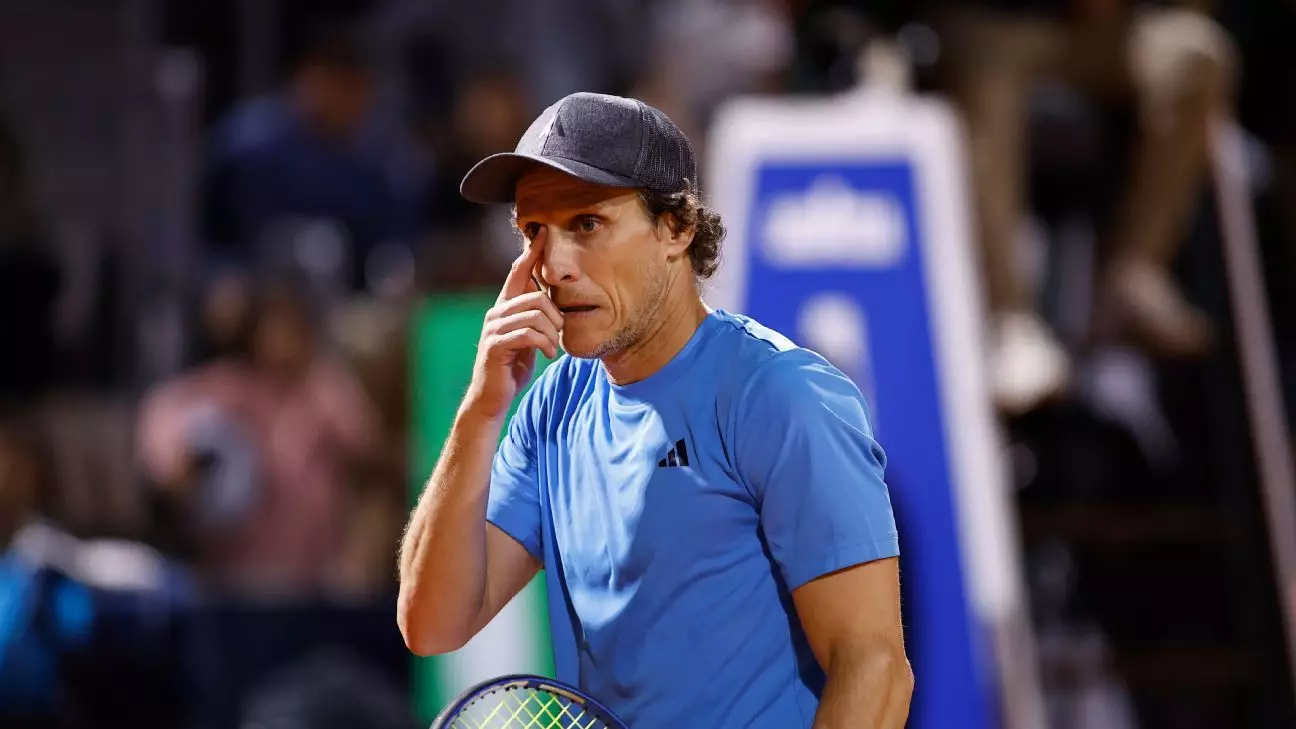Diego Forlán, a name synonymous with football glory, has taken an unexpected turn in his post-retirement career by entering the world of professional tennis. The former international football star, celebrated for his prowess on the pitch, faced a challenging debut during the Uruguay Open, where he and partner Federico Coria fell to Boris Arias and Federico Zeballos 6-1, 6-2 in the first round of the ATP Challenger Tour. Forlán’s foray into tennis demonstrates not just his passion for sports, but also a willingness to embrace new challenges, despite the inevitable difficulties that accompany such transitions.
In interviews following the match, Forlán expressed a familiar sentiment among athletes who venture into new disciplines: the understanding that the path would not be easy. “I enjoyed it a lot,” he remarked, showcasing a positive attitude that resonates with many who have faced setbacks in sports. Forlán prepared himself for the competition’s reality, aiming not just to win, but to savor the experience. His approach underlines an important aspect of athletic transition—the need to set realistic expectations while fostering a love for the game itself. His gratitude toward the supportive crowd that filled the stadium highlights another crucial point: the importance of community and support in any athletic endeavor, professional or amateur.
Forlán’s illustrious football career included iconic stints with clubs like Manchester United and Atlético Madrid, as well as a memorable international career with Uruguay that culminated in winning the 2011 Copa América. Recognized as the best player of the 2010 FIFA World Cup, Forlán carved out his place in football history with stunning performances and crucial goals. This decorated past provides him with a unique platform as he navigates the uncharted waters of professional tennis, where he now must build his identity anew.
Despite his initial loss, Forlán’s entry into tennis is not entirely without merit. Having participated in amateur master’s tennis tournaments over the past five years, he has continued to refine his skills, earning a wild-card entry into Uruguay’s foremost tennis event as a result. This background suggests a commitment to learning and improvement that is essential in any sport, especially when transitioning from one to another. It underscores how his journey through tennis may become not merely about victories but also about personal growth—a concept deeply rooted in athleticism.
Forlán’s journey serves as an inspiring narrative for athletes contemplating life after their primary sport. While the spotlight may fade post-retirement, the skills, discipline, and passion cultivated in one sport can often translate into another. His first match may be seen as just one step in a much broader journey, highlighting the importance of resilience. As he continues to explore this new path, Forlán embodies the essence of an athlete: a lifelong learner, eager to embrace the difficulties and rewards that come with pursuing sports, regardless of the discipline.

